This page contains paid links (details here) as well as links to the official ReptiFiles store. Purchases made from these links help fund my reptile welfare research and educational efforts. Thank you for your support!
Prepared Diets
Generally speaking, prepared diets are not the best way to feed a reptile. The ingredients are typically full of fillers and they don’t provide a balanced diet.
BUT!
In the case of crested geckos, I make an exception. Thanks to the exhaustive efforts of some really smart people, there are nutritionally-complete prepared diets on the market ready for your gecko to chow down. Who made the cut?
- Arcadia
- Pangea
- Repashy
- Black Panther Zoological (BPZ)
- Leapin’ Leachie
- Zoo Med (new formula only)
- Lugarti (read my review here)
- Blue River Diets (read my review here)
These brands offer high quality formulas with a range of flavors to suit your individual gecko’s preference. Most can be found at BertopiaDiets.com or Blue River Diets. If you live in the US and are looking for Arcadia, you’ll have to get it from ReptilesRuS.ca.
How to Feed Your Crested Gecko
Mix the powdered diet with water to a ketchup or smoothie consistency and offer in a biodegradable condiment cup. Most cresties prefer eating up off of the ground, so you’ll need a wall-mounted feeding ledge.
Juveniles (0-12 months old): CGD daily, insects 1-2x/weekly
Adults (>12 months old): CGD every 2-3 days, insects 0-1x/weekly
How do I know which brand and/or flavor to get?
Generally speaking, geckos prefer the food that their breeder raised them with. This is not always the case, however—my male crestie was raised on Pangea With Insects, but we accidentally offered Repashy Grubs N’ Fruit once and he’s been hooked since. Moral of the story—find what your gecko likes best and stick to it.
What about other brands?
Developing a trustworthy prepared diet requires generational testing, precise nutrient ratios, high quality ingredients, palatable flavor, and popularity among experts. So far only the above brands have passed the test. Diets offered by other brands like National Geographic, Exo Terra, etc. should be left on the shelf.

This crested gecko was fed undusted crickets and low-quality crested gecko diet as a juvenile, and developed severe MBD as result. If you are not using UVB, feeding top of the line food is essential. Photo used with permission from Wendy Ontiveros.
Insects
If you are feeding your gecko a prepared diet that already has bugs in it (Pangea With Insects, Repashy Grubs N’ Fruit), technically feeder insects are not needed for the gecko’s survival. But they make good source entertainment and exercise for the gecko, and they help juveniles grow faster, as well as fatten thin adults.
In other words: even with a good crested gecko diet, crested geckos still need bugs. Offer insects 1x/week for best results. If you notice that your gecko is getting fat on this schedule, reduce the number of feedings.
Good feeder insects are:
- crickets
- dubia roaches
- discoid roaches
- small hornworms (captive only; wild are toxic!)
- black soldier fly larvae
- silkworms
Waxworms can be offered occasionally as treats, especially for thin geckos. Take care not to offer anything too large—while worms have soft bodies that are easy to chew and digest, feeder roaches should be no wider than the space between the gecko’s eyes.
Avoid mealworms and superworms. These are known to be potentially difficult to digest for cresties, leading to impaction in some cases.
All insects should be dusted with a calcium supplement to correct the Ca:P (calcium to phosphorous) ratio.
My preferred calcium supplements for crested geckos are:
- Zoo Med Repti Calcium (with D3) (without D3)
- Repashy SuperCal (with D3) (without D3)
- Miner-All (with D3) (without D3)
If you are using UVB light in your crested gecko’s enclosure, use a calcium powder without vitamin D. If you are not using UVB light in your crested gecko’s enclosure, use a calcium powder with vitamin D.
Note: All feeder insects should be gutloaded for at least 24 hours before feeding. Ideally, they should come pre-gutloaded from the breeder. If they weren’t, or you buy your feeder insects in bulk, the easiest way to keep them fed and gut-loaded is with one of the following formulas (or a rotation for more varied and complete nutrition!):
Is baby food okay?
No. Baby food typically contains preservatives, and artificial colors/flavors. Additionally, since it’s formulated for humans, the nutrient ratios are off, and your gecko can get sick.
Can I give my gecko fresh fruit?
As an occasional treat, yes. Appropriate fruits include bananas, mango, apricots, papaya, and berries. (For more information, visit Moon Valley Reptiles.) Keep in mind that if you offer fruit too often, the gecko may reject prepared diet, risking malnutrition.
Can crested geckos drink water from a bowl?
Contrary to popular belief, YES — crested geckos can see, recognize, and drink water from a bowl. Most feeding ledges have space for two condiment cups, so provide CGD in one of them, and fresh water (not distilled or reverse-osmosis) in the other. Your gecko will still drink after you mist the enclosure, but in case they get thirsty between mistings, they won’t have to wait.
